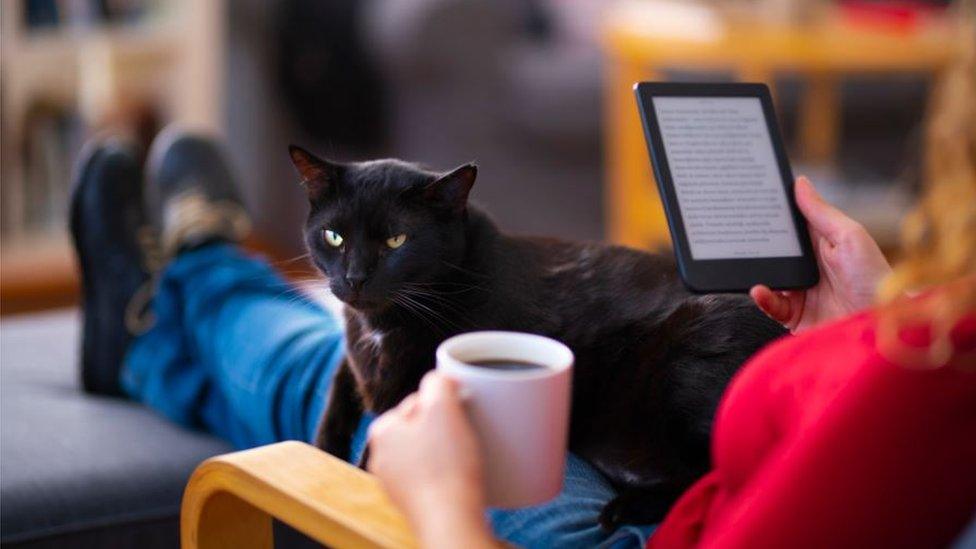Coronavirus: How libraries provided a lifeline in lockdown
- Published
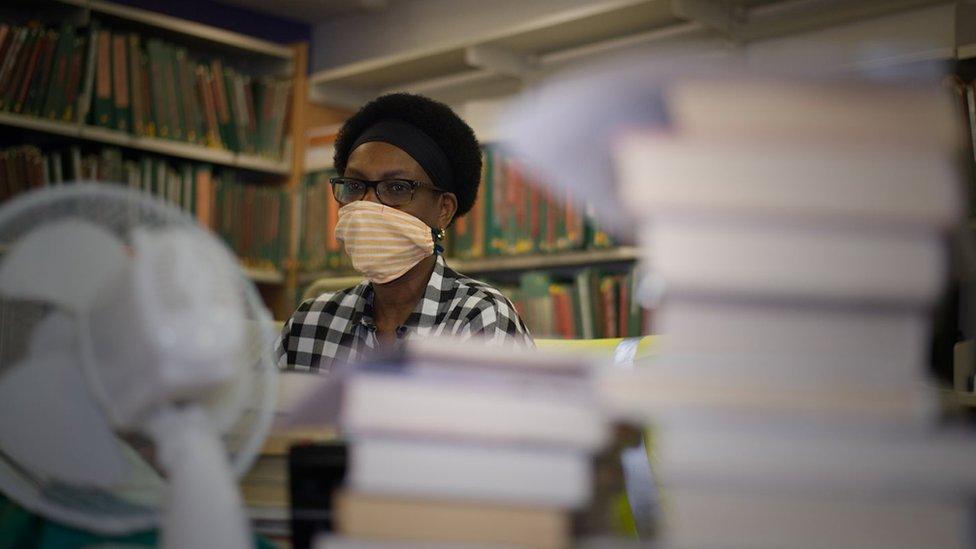
Jemima Smith said most customers were happy with the book selections she and other librarians had made
When libraries went into lockdown, the buildings and books were off-limits but their kindness, connection and sense of community continued. BBC News went to Ipswich Library to hear how people have been finding solace in more than just the pages of a favourite book.
As the coronavirus pandemic gathered pace, book lovers were just as quick to act.
Books, they knew, would offer them calm in the unchartered storm that was to come.
Libraries found their shelves being cleared as novels, children's picture stories and recipes were borrowed in their thousands.
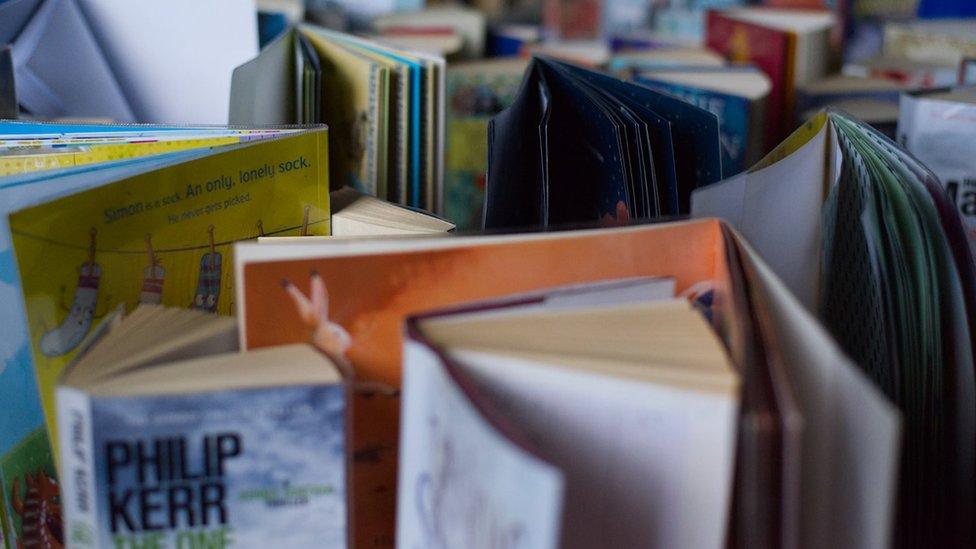
But not everyone needs a library just for its literature.
Doris Bugg, 102, takes great pleasure in audiobooks borrowed from Ipswich Library but needed what libraries also offer - a connection to others, a conversation.
It was care and concern for people like Mrs Bugg that led librarians to call her for a regular chat.
When Mrs Bugg reminisced over the phone about a novel her father read to her, they bought a copy and recorded themselves reading it, especially for her.
"I was absolutely amazed at the kindness of them," she said.
Mrs Bugg's story is just one of many that have been shared about Suffolk Libraries during lockdown.
Its staff have now made 7,200 calls to vulnerable customers, with more than 700 receiving regular contact in Ipswich alone.
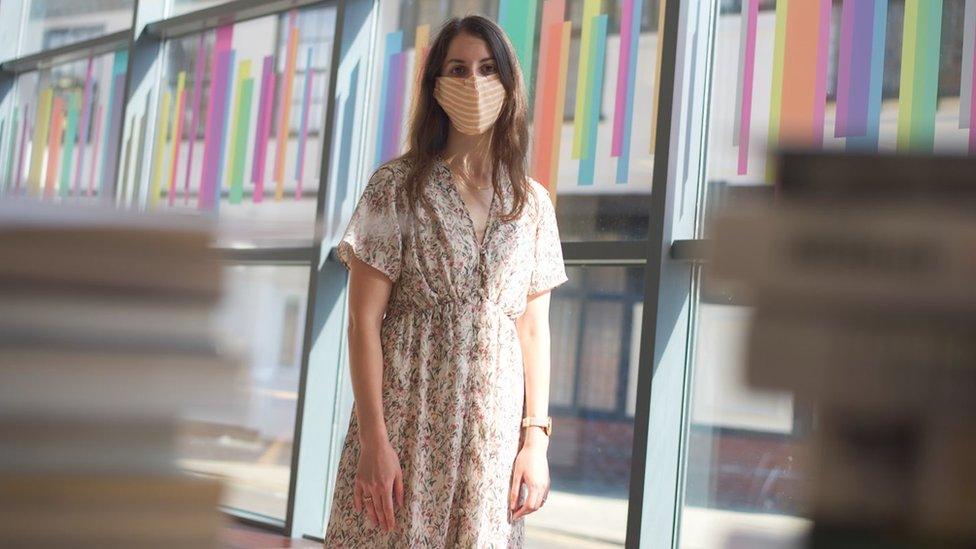
Many people told librarians that lockdown was the first time they had experienced a crisis alone, said assistant library manager Margot Lafrance
"A lot of libraries have visitors that they know come in the library for a chat," said Margot Lafrance, the assistant manager at Ipswich.
"Some were completely alone and living in flats, and hadn't been able to go outside for a month, and it was those we tried to reach out to on a regular basis.
"It's not always about any specific thing, it's just to hear how they're doing.
"So many said it was the first time they had experienced a crisis where people couldn't come together.
"Every other horrible thing that anyone had ever been through, they could come together with family and the community and support each other.
"Sometimes you make a call and they sound so happy, they're so excited to get a chat."
Most branches of Suffolk Libraries have now reopened and people are keen to replace the books they read many weeks ago.
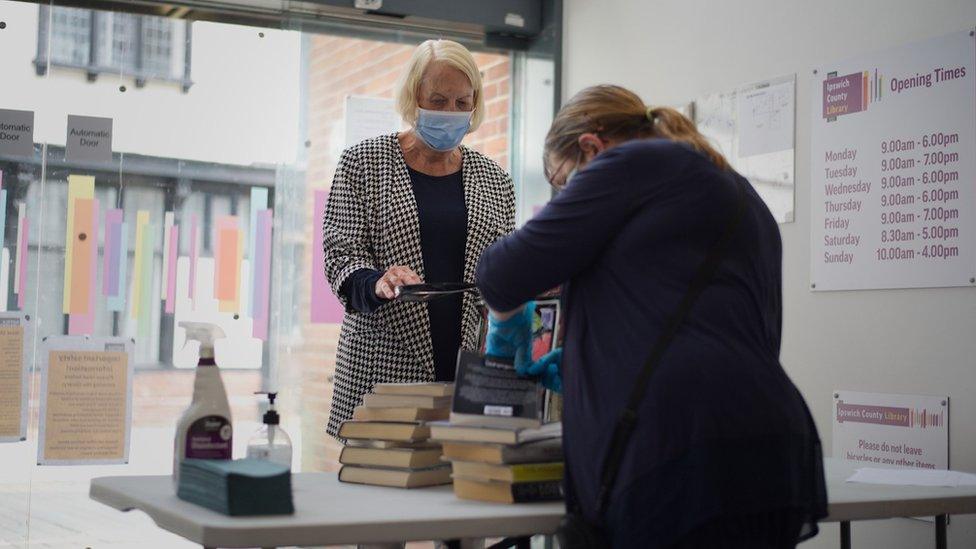
Lindsay Spring said she could not get used to reading e-books on her laptop
Lindsay Spring, who would usually visit the library each week, found it "frustrating" not being able to carry that on during lockdown.
"I've re-read everything on my bookshelf for the umpteenth time, and I've downloaded books but I find it a strain on the eyes," she said.
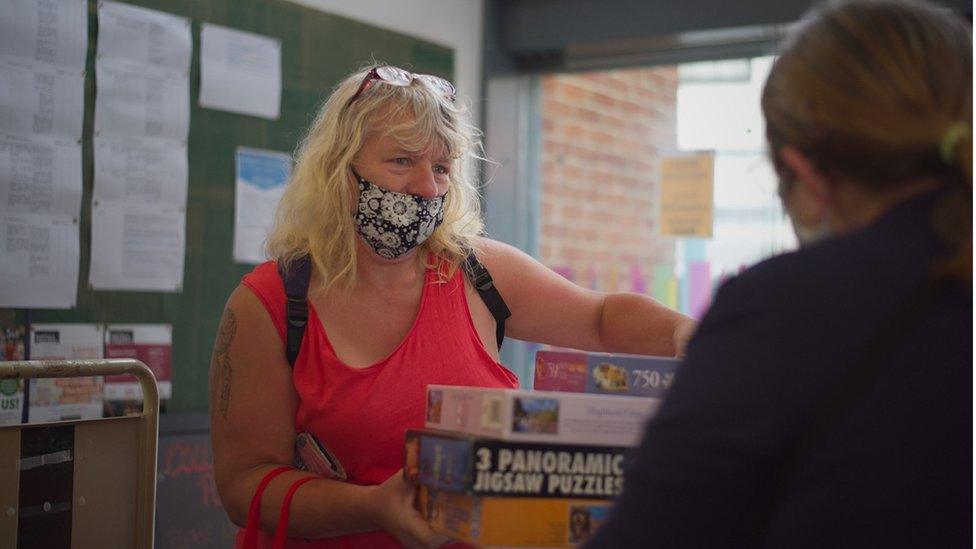
A pile of puzzles returns for the library's jigsaw swap service from library user Gayle Burrows
Strict hygiene and social distancing rules mean customers cannot walk in and browse but librarians can do it for them.
Jemima Smith, protected by a face mask and gloves, is surrounded by books being placed in bundles ready for collection.
Rather like a supermarket worker searching the shelves for a customer delivery, she is finding books, DVDs and CDs requested by customers online.
"We're selecting about 10 books for each customer," said Ms Smith.
"They give us a selection of books or authors, or what they want to read.
"Some just say 'intelligent books', some have said 'male authors only' or 'new books only', because they're worried about the virus."
Customers book a slot for their collection and meet a librarian in the foyer, where a table is laden with hand sanitiser and cleaning spray.
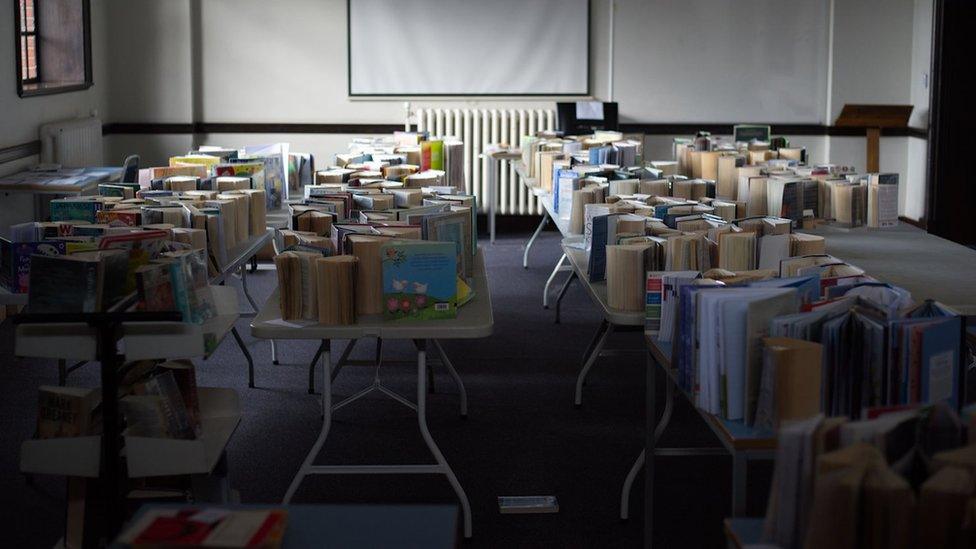
Ipswich Library has about 200 books in quarantine
Anything that has been borrowed and returned heads off to the quarantine zone.
Just as charity shops cannot sift through donations for 72 hours - to reduce the contaminant risk - libraries store returned books on tables for three days, their pages fanned out to allow as much airflow as possible.
Ipswich Library manager Charmain Osborne and her staff at the Northgate Street branch have had to adapt, both during lockdown and in returning to the library building.
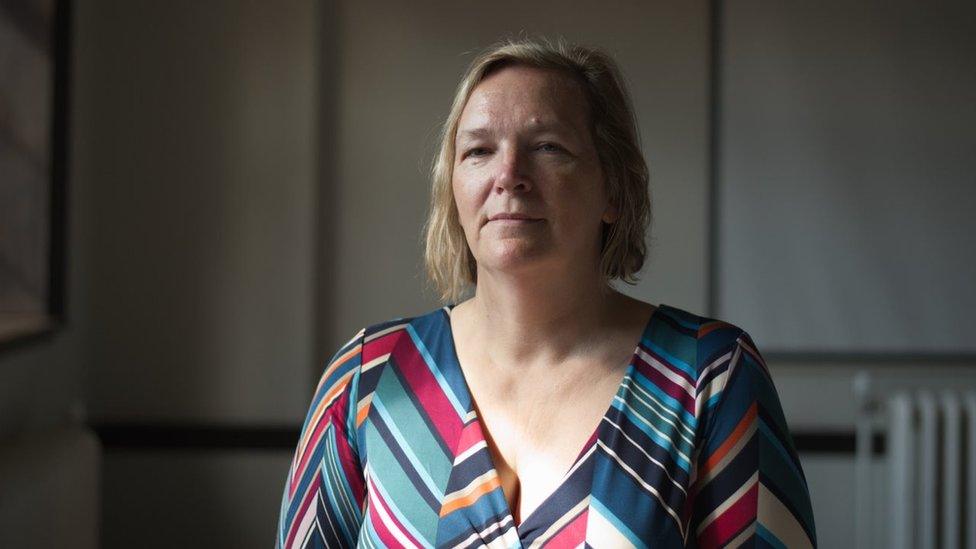
Charmain Osborne is among librarians who are reading the 800+ pages of Book of Clare for Doris Bugg
"It was completely different way of working for us - we are very customer-focused, but we are very flexible, so we just looked very quickly at how we cold put that online," she said.
Craft activities, quizzes and nursery rhyme sing-a-longs were recorded by staff at home, and newspaper articles and an 'On This Day' history series were shared online.
You may also like:
But librarians were also concerned that as books went into hibernation, so too did face-to-face contact with people who would not be glued to YouTube or Facebook.
Soon after lockdown, staff were given online training from Suffolk Mind to ensure they looked after their mental health, and began checking in over the phone with the most vulnerable.
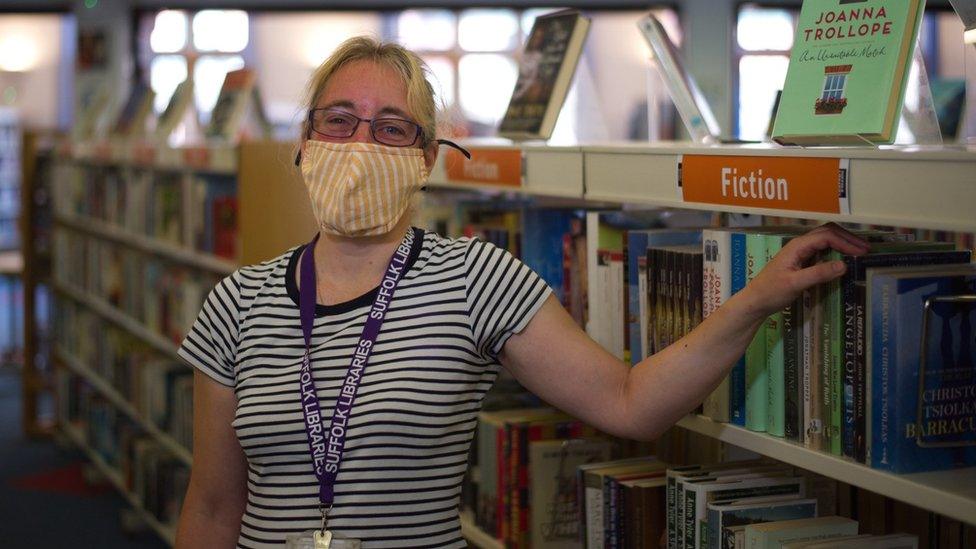
Librarian Rachel Huddle was in a lockdown in a one-bedroom flat and enjoyed making calls to customers
The benefits were obvious.
It was a librarian who phoned a woman back to ensure she had been in touch with a doctor about the pain in her leg and foot, and it was librarian who was among the first to chat to an elderly woman after she had had a fall.
Staff were rewarded, too - a recently widowed librarian found comfort in speaking to other women living alone.
Rachel Huddle, in lockdown in her one-bedroom flat, said it helped her cope with what she missed most about her job.
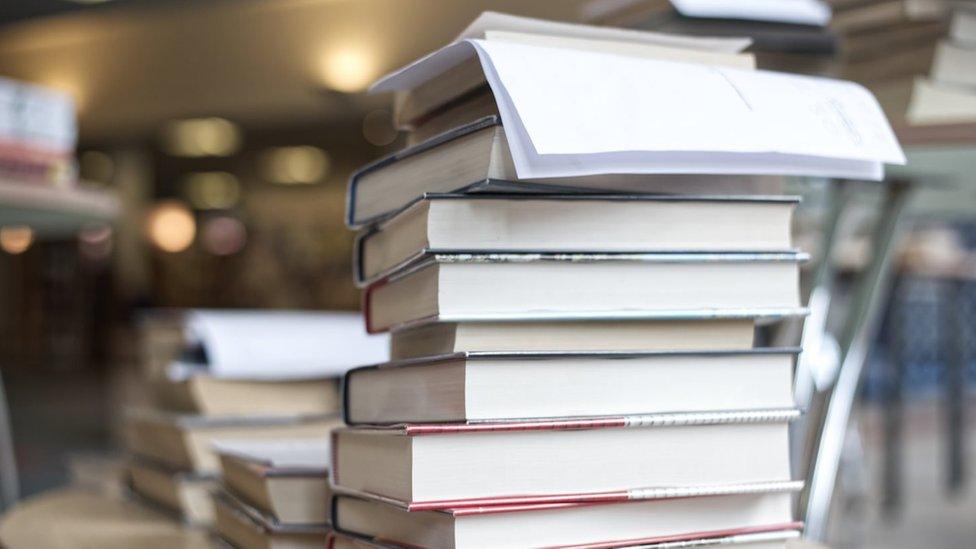
Ipswich Library has seen a surge in demand for its services
"It was not being able to see anyone, to talk to anyone," she said.
"The calls have been a godsend for me."
She helped many people, including a shielding customer who could got not get online to request priority food deliveries.
"If someone said to me five years ago that that making welfare calls would be one of the best things about my job, I'd laugh.
"But it is the kind of thing I do the job for, whether it's on the phone or here, it's helping people," she added.
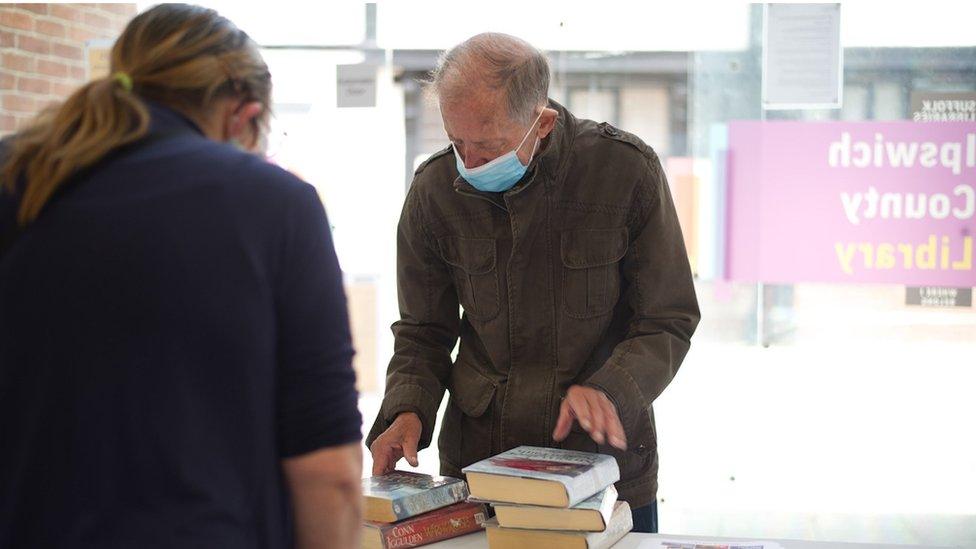
Jeffrey Weir takes a look a his new library books
At Gainsborough library, in the east of the town, staff have dropped off weekly food parcels to 22 homes and delivered sanitary products, which are usually available for free from libraries.
A mum was "brought to tears" by the kindness, said Sarah Woolven of the library friends group.
It has begun an appeal to keep the deliveries going.
Suffolk Libraries thrived in lockdown, and followed the national trend with a surge in e-book borrowing while its doors were closed.
Its YouTube channel received many more views, its staff became a dab hand at editing videos at home, and hundreds of people found friendship and kindness over the phone.
But as another pile of freshly-selected books is placed in the foyer, among the 10,000 borrowed already this week, there is real joy at its return.
Picking up his bundle of historical fiction, Jeffrey Weir is thrilled with his new reads.
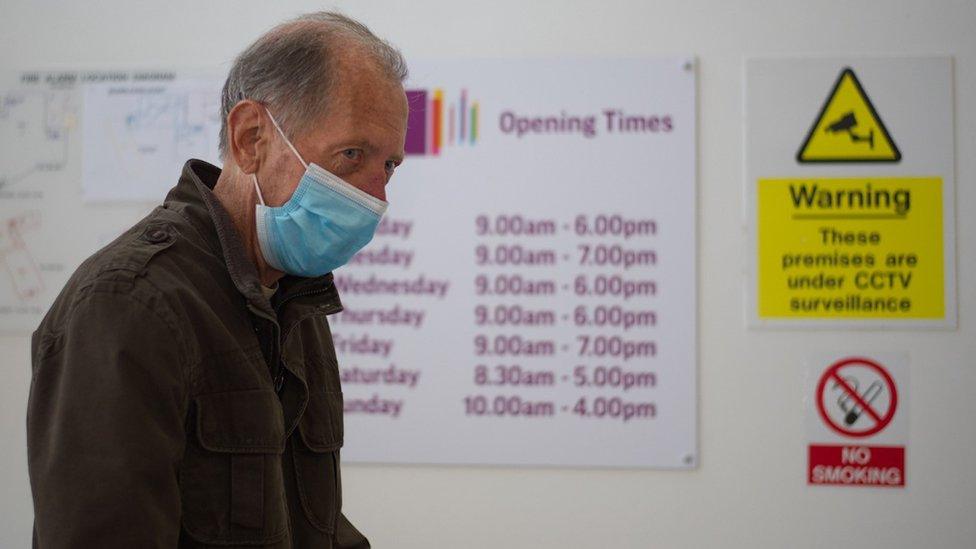
Jeffrey Weir is a regular at the library
What was it like for him, the library being closed for 18 weeks?
"Terrible, terrible," he replies, emphatically.
"I like to talk to people."

SOCIAL DISTANCING: What are the rules now?
FACE MASKS: When should you wear one?
TESTING: Who can get a test and how?

Find BBC News: East of England on Facebook, external, Instagram, external and Twitter, external. If you have a story suggestion email eastofenglandnews@bbc.co.uk, external
- Published1 July 2022

- Published4 July 2020
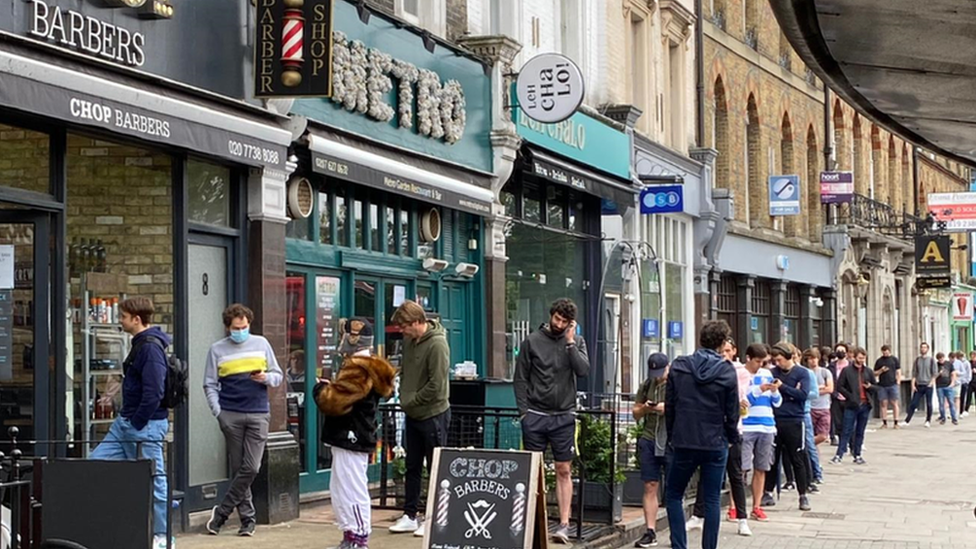
- Published30 June 2020
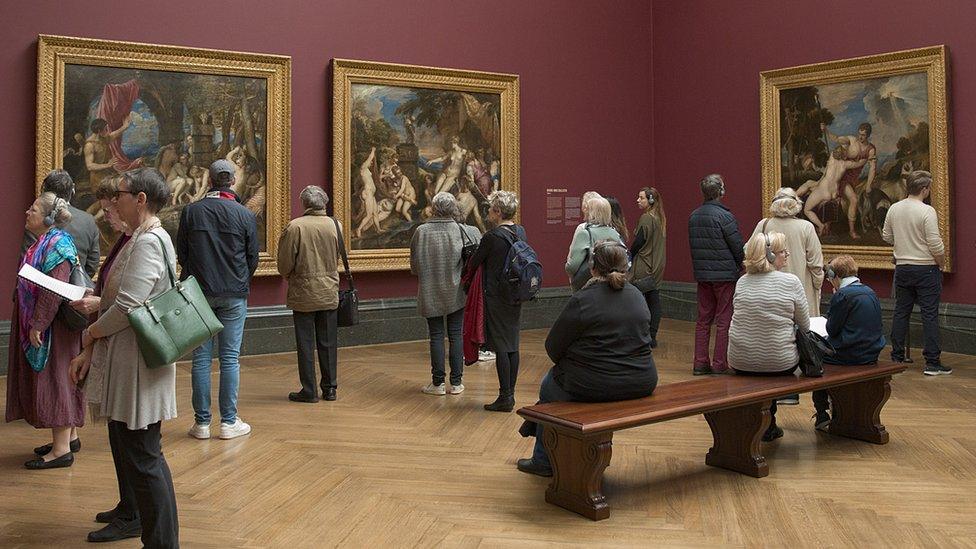
- Published20 June 2020
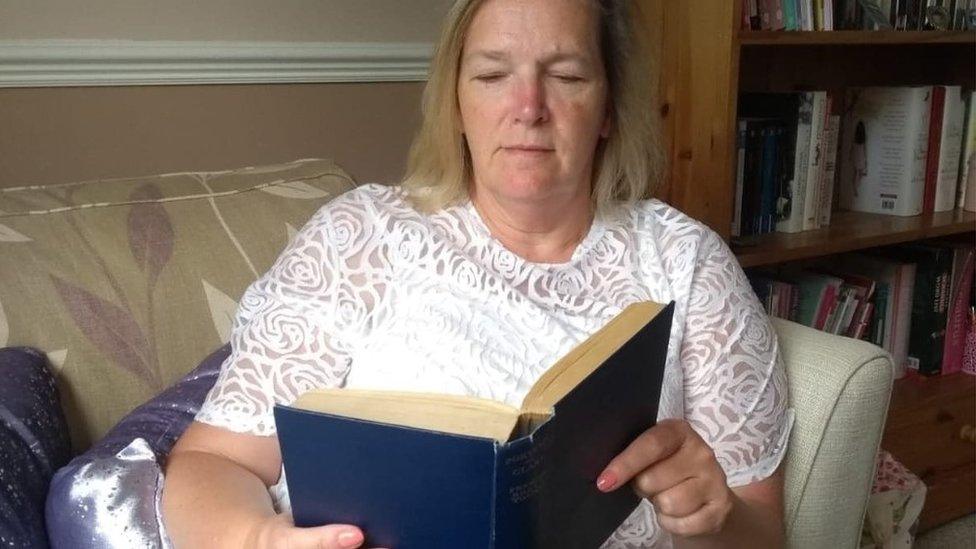
- Published24 April 2020
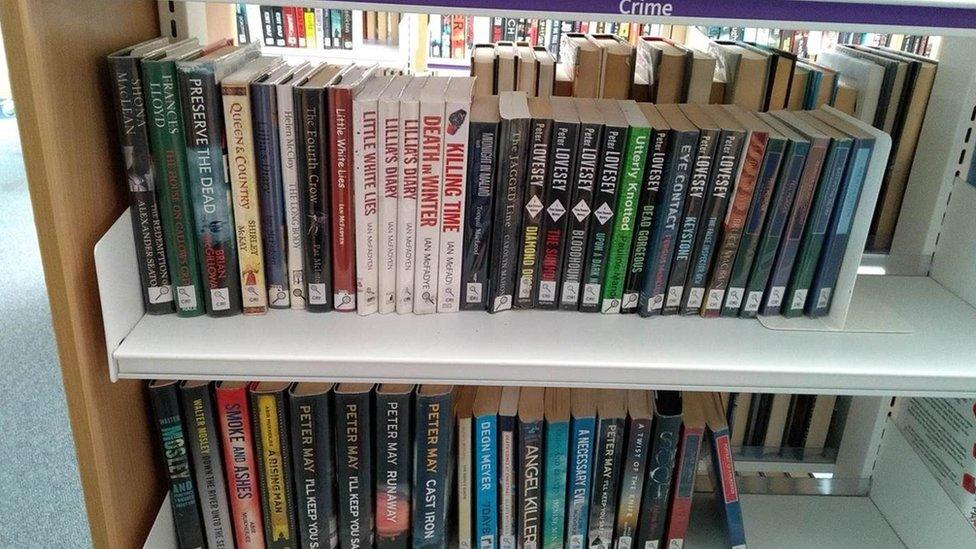
- Published22 April 2020
